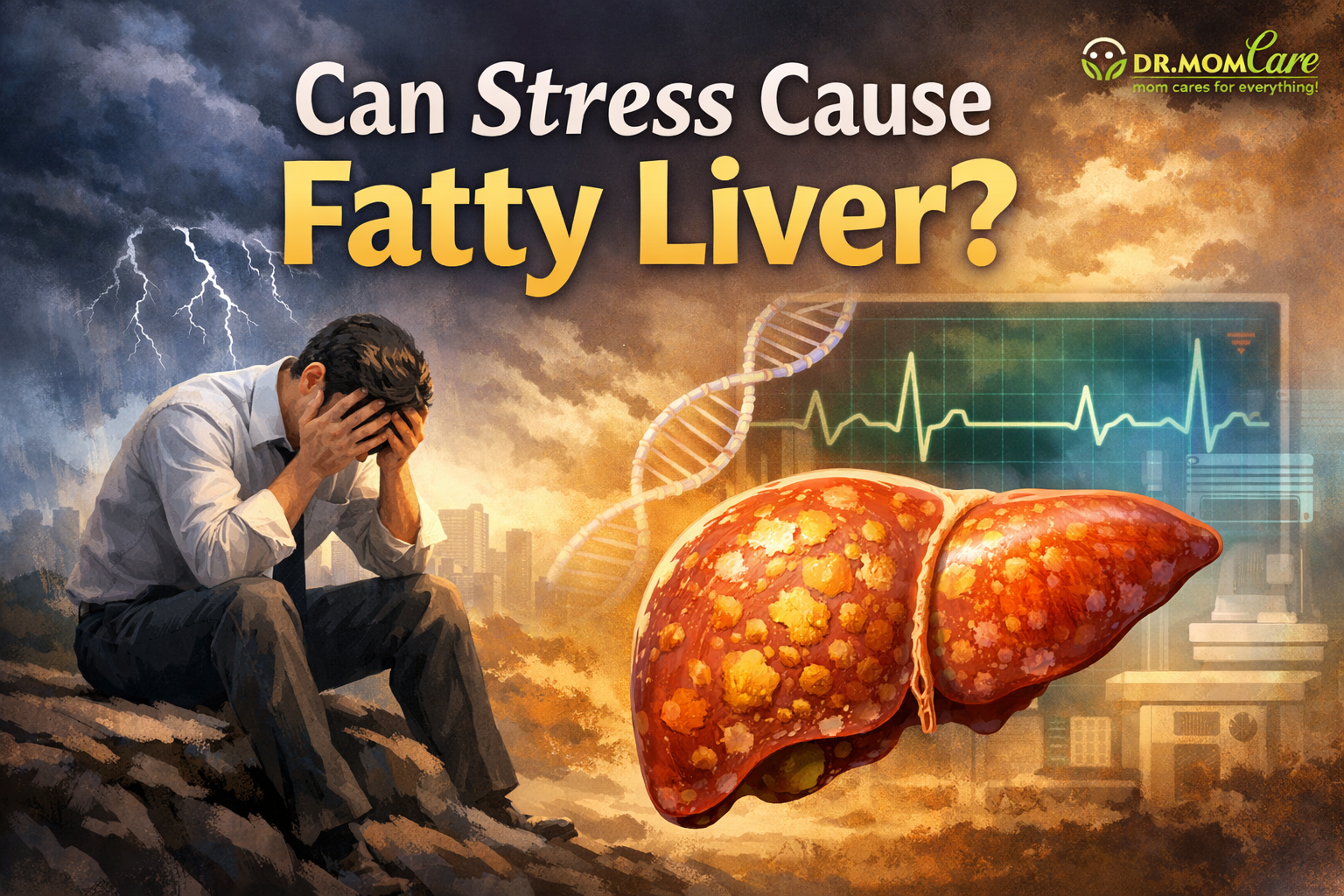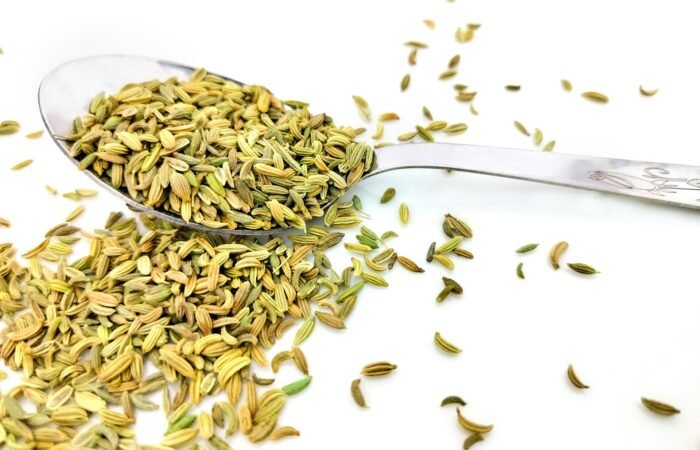
We often think of fatty liver disease as a consequence of diet, obesity, or a sedentary lifestyle. While those are certainly major contributors, a lesser-discussed yet increasingly relevant question is:
Can stress cause fatty liver?
In our fast-paced, hyper-connected world, chronic stress has become a silent epidemic—fueling everything from high blood pressure to insomnia. But what if that stress is also quietly harming your liver?
Let’s explore the surprising and complex relationship between stress, hormones, and liver health.
What Is Fatty Liver?
Fatty liver, or hepatic steatosis, occurs when excess fat accumulates in liver cells. There are two main types:
- Alcoholic Fatty Liver Disease (AFLD) – Caused by heavy alcohol use.
- Non-Alcoholic Fatty Liver Disease (NAFLD) – Linked to poor diet, obesity, insulin resistance, and increasingly, psychological stress.
While NAFLD typically progresses slowly, it can lead to inflammation (steatohepatitis), scarring (fibrosis), and eventually cirrhosis if not managed early.
Can Stress Cause Fatty Liver? Here’s What Science Suggests
1. Stress Affects Hormonal Balance—Especially Cortisol
When you’re under stress, your body produces cortisol, a hormone meant to help you cope with immediate threats. However, chronic stress keeps cortisol levels elevated, which has a ripple effect on several bodily functions:
- Increases blood sugar levels
- Promotes fat storage—especially visceral fat, which surrounds internal organs
- Contributes to insulin resistance
These metabolic disruptions can lead to increased fat accumulation in the liver, making stress an indirect—but powerful—contributor to fatty liver.
2. Stress Impairs Liver Detoxification
Your liver is a detox powerhouse, processing everything from alcohol to medications to environmental toxins. However, when you’re chronically stressed, the sympathetic nervous system (fight-or-flight mode) becomes dominant. This state:
- Diverts energy away from digestion and detox
- Reduces blood flow to the liver
- Alters bile production and enzyme activity
Over time, this impaired liver function may contribute to fat buildup and inflammation.
3. Emotional Eating and Lifestyle Habits
Let’s be honest: when stressed, most people don’t reach for broccoli. They grab chips, sugary snacks, alcohol—or skip meals entirely. Chronic stress leads to poor dietary choices, irregular eating patterns, and disrupted sleep—all of which worsen insulin resistance and increase fat deposition in the liver.
4. Stress Worsens Inflammation—A Key Driver of Liver Damage
Cortisol is anti-inflammatory in short bursts. But when the stress doesn’t stop, the body becomes less responsive to cortisol, and inflammation actually increases. This systemic inflammation can exacerbate fatty liver disease, particularly if it’s already in the early stages.
Research Backs the Stress-Liver Link
Several studies have explored the psychological factors contributing to fatty liver:
- A 2020 study published in the Journal of Gastroenterology and Hepatology found that chronic stress and anxiety were significantly associated with the severity of NAFLD.
- Another study in Psychosomatic Medicine suggested that stress-induced metabolic changes contribute to fat accumulation in the liver and other internal organs.
- Animal research shows that rats exposed to long-term stress developed liver inflammation and fat buildup, even without changes in diet.
While human studies are still evolving, the evidence clearly points to a strong mind-body connection in liver health.
Signs That Stress May Be Impacting Your Liver
You might not notice liver damage right away, but some symptoms could suggest that stress is playing a role:
- Fatigue that doesn’t improve with rest
- Digestive issues like bloating, nausea, or sluggish bowel movements
- Unexplained weight gain, especially around the abdomen
- Brain fog, anxiety, or irritability
- Elevated liver enzymes on routine blood tests
Managing Stress to Support Liver Health
The good news? Managing stress effectively can protect and even help reverse fatty liver, especially in its early stages. Here are some powerful yet practical strategies:
1. Mindfulness & Meditation
Even 10–15 minutes a day can reduce cortisol levels and improve parasympathetic activity, supporting liver detox and digestion.
2. Physical Activity
Exercise isn’t just for weight loss. It lowers cortisol, improves insulin sensitivity, and boosts liver function. Aim for at least 30 minutes of moderate movement, five days a week.
3. Balanced Diet
Fuel your body with whole foods, fiber, and antioxidants. Reduce sugar, processed foods, and trans fats. Add liver-friendly foods like leafy greens, turmeric, beets, and lemon water.
4. Sleep Hygiene
Lack of sleep amplifies stress hormones and promotes fat storage. Prioritize 7–9 hours of quality sleep every night.
5. Therapeutic Support
If stress feels unmanageable, don’t hesitate to seek help. Therapy, counseling, or support groups can help address the root causes of chronic stress and anxiety.
Final Verdict: Can Stress Cause Fatty Liver?
Yes—chronic stress can absolutely contribute to fatty liver.
While it might not be the only cause, it plays a powerful role in driving hormonal imbalance, inflammation, poor lifestyle choices, and impaired liver function.
If you’re working to reverse fatty liver disease, don’t overlook the emotional and mental aspects of healing. A calm mind can lead to a healthier liver—and a healthier life.
Summary
- Chronic stress raises cortisol, leading to insulin resistance and fat buildup in the liver.
- Stress worsens inflammation and impairs liver detoxification.
- Emotional eating and poor sleep under stress contribute to liver damage.
- Stress management is a crucial part of fatty liver recovery.
Tags:
Subscribe To Get Update Latest Blog Post
No Credit Card Required









Leave Your Comment: